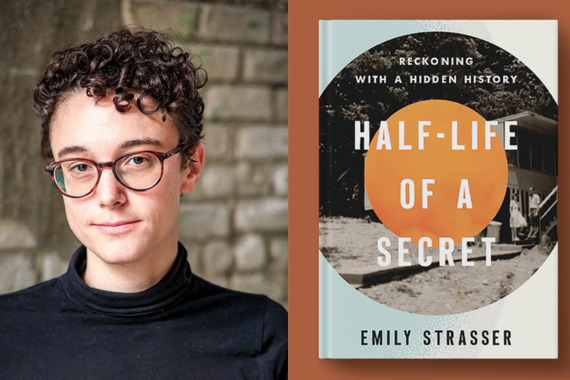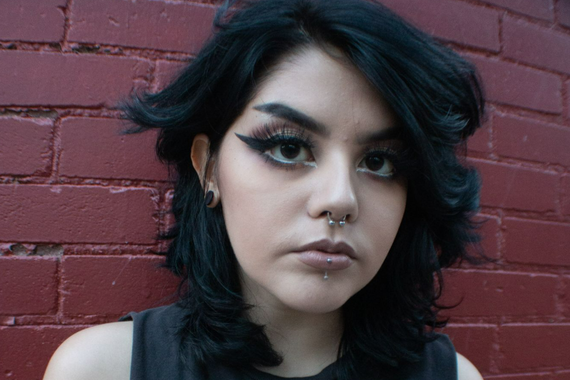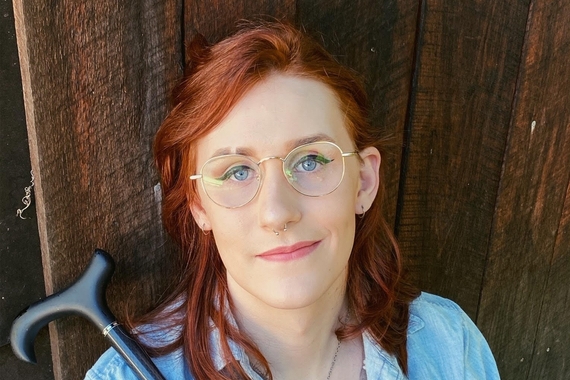MFA Student Spotlight Interview With Julian Robles
A writer from California, Julian Robles is a third year MFA candidate who will be doing research in Mexico City through a Fulbright Program Award. Robles is also a music journalist and has won several contests and awards. Currently, he is completing a short story collection about Latinx artists.
I asked Robles to tell me about his experience here and his work. He shared some very interesting details.
Hannah Karau: Congratulations on your Fulbright Scholarship for research in Mexico City! Now that your hard work has paid off, can you tell me more about the novella you plan to research and write during your stay in Mexico?
Julian Robles: Thank you! My research will investigate the textile industry in Mexico City between the 1950s and 1970s. The topic sounds kind of obscure, and really different from—and less fun—than what I've written in the past, but it is something that has interested me for a while. My grandmother worked for several years in Mexico in sweatshop conditions. She was a migrant from the rural southern region of the country, and so I want to write about internal rural-to-urban migration in Mexico, a topic overlooked in nearly all English-language fiction about Mexico. I am also interested in labor as a subject: as in what constitutes labor; and thinking of the image of my grandmother seated at a machine sewing and the image of me seated at a machine writing, and those as physical arrangements looking so similar, but as social and political conditions being really, really distinct. Lastly, there’s the question of big companies exploiting laborers and then turning around and using that money to fund the arts. I can’t write the novella and not consider the power and money that’s letting me write to begin with.
HK: Your work is obviously well written considering the rewards you’ve received, like your Fulbright Scholarship or the Gesel Prize in Fiction. And I’ve read “Breast Cancer and Your Arm!” I loved it. How have your writing successes impacted your life?
JR: It’s nice to see the work acknowledged and to get paid in the instances when there’s money attached to a prize. That’s the biggest material impact, to be honest. I don’t know that I attach success to the prize, though. So much good writing goes ignored for years; I’m skeptical of prizes even when I win one—often they seem to acknowledge writing that imitates what people like in the current decade or last five years or whatever. I like literature that thinks ahead. I guess that’s a way of saying that winning prizes makes me want to write better. Like the story you’ve mentioned – I’m happy I wrote it, but I look at it now and know I could have written it better.
HK: You’re in your final semester of the MFA program, so now that you’ve gone through nearly all of it, what has been your favorite part of the experience?
JR: All the time to write and read. There’s nothing I enjoy more.
HK: On the flip side, what has been the hardest struggle here and what advice for dealing with it would you give someone entering our program?
JR: I entered the program as part of a diverse cohort. Diverse in a lot of ways—gender identity, ethnicity, class background. There was an adjustment period for everyone learning how MFA programs haven’t historically made space for people like us. No shade to those running the program—it’s actually doing a good job of adapting. I’d tell anyone to come in prepared for that. My peers have put in a lot of work to bring about change. So, going back to your last question, I think seeing people so committed to making a better space for all writers has been really heartening. The other issue, which seems more intractable, is the pitiful compensation paid to graduate students for their work. Like a lot of universities, this one could do better.
HK: What piece of writing are you most proud of from your time in the MFA and why?
JR: I wrote this little novella called “Banking for Virgins.” I’m still revising it. The whole writing process took a lot out of me. It’s a story with a lot of honesty and ugliness. It’s messy and overly ambitious in a way that I love in books. Sometimes I wonder if I’ll regret writing it but that’s how I know it tried something new.


